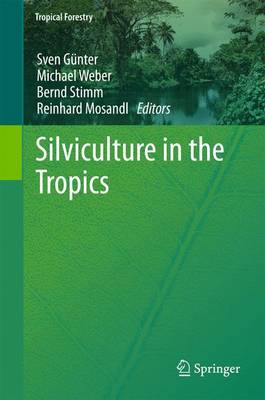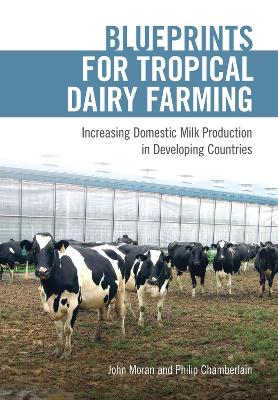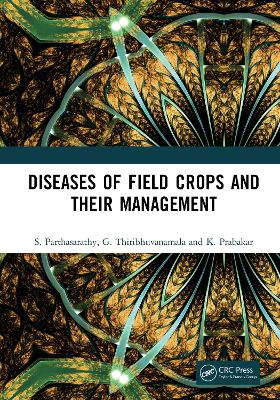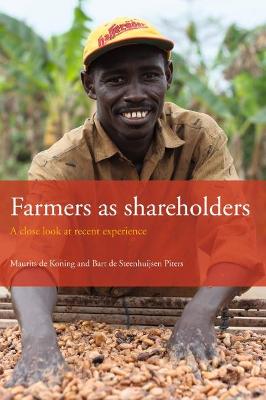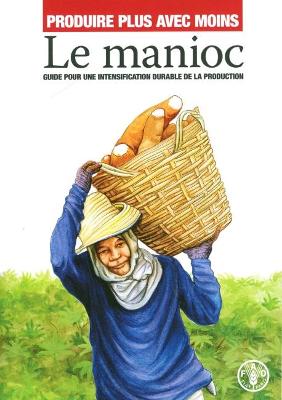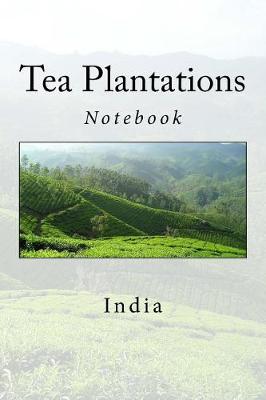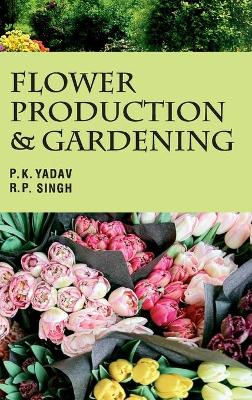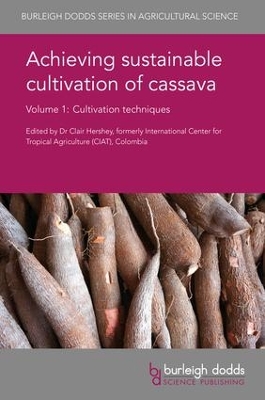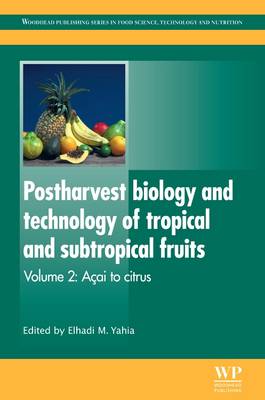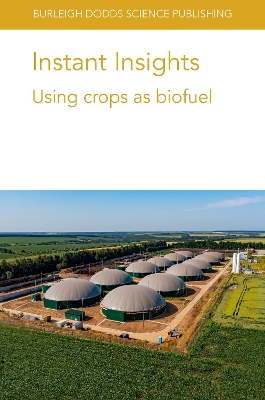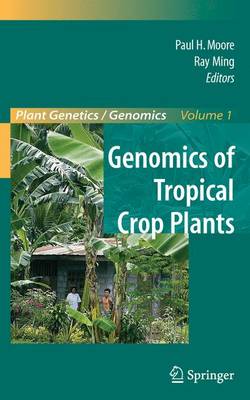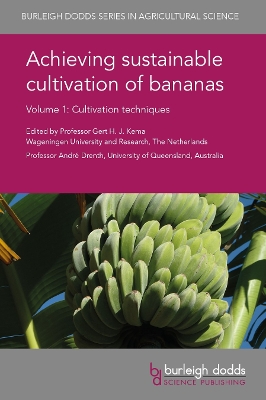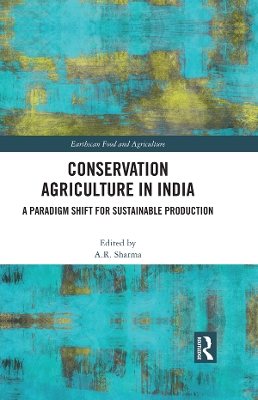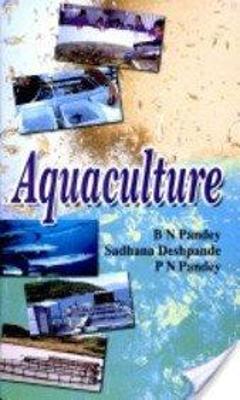Silviculture in the Tropics (Tropical Forestry, #8)
This book integrates the latest global developments in forestry science and practice and their relevance for the sustainable management of tropical forests. The influence of social dimensions on the development of silvicultural concepts is another spotlight. Ecology and silvicultural options form all tropical continents, and forest formations from dry to moist forests and from lowland to mountain forests are covered. Review chapters which guide readers through this complex subject integrate nume...
Advances in Coconut Research and Development
Papers of the second International Symposium on Coconut Research and Development, held at Central Plantation Crops Research Institute, Kasargod, Kerala, 26th-29th Nov. 1991 organized by the Indian Society for Plantation Crops.
The banana is the world's most important fresh fruit commodity. Little more than a century old, the global banana industry began in the late 1880s as a result of technological advances such as refrigerated shipping, which facilitated the transportation of this highly perishable good to distant markets. Since its inception the banana industry has been fraught with controversy, exhibiting many of the issues underlying the basic global economic relations that first emerged in the era of European co...
Blueprints for Tropical Dairy Farming provides insight into the logistics, infrastructure and management required for the development of small and large dairy farms in tropical developing countries. Farmers will learn how to improve the welfare, milk quality and productivity of their dairy herds. This book complements author John Moran's five previous books on the principles of tropical dairy farming. The manual covers a wide range of topics related to ensuring the sustainability of dairy produ...
Diseases of Field Crops and their Management
by S Parthasarathy, G. Thiribhuvanamala, and K Prabakar
The book entitled Diseases of Field Crops and their Management provides most recent information about major diseases of cultivation field crops, their symptoms, pathogen characters, epidemiology, and management. In order to make the book all in one, the importance of major diseases has also been dealt with in brief. Note: T&F does not sell or distribute the Hardback in India, Pakistan, Nepal, Bhutan, Bangladesh and Sri Lanka.
Farmers as Shareholders (Bulletins of the Royal Tropical Institute, #390)
by Maurits De Koning and Bart De Steenhuijsen Piters
Produire plus avec moins: Le manioc
L'application du modèle d'agriculture «Produire plus avec moins» fondé sur une approche écosystémique permet aux planteurs de manioc d'exploiter pleinement le potentiel du manioc, c'est-à-dire d'obtenir des rendements plus élevés, de lutter contre la pauvreté rurale et de contribuer au développement économique national, tout en évitant les risques inhérents à l'intensification.
Dynamics of Soil
Achieving sustainable cultivation of cassava Volume 1
Originating in South America, cassava is now grown in over 100 countries around the world. It is the third most important source of calories in the tropics after rice and maize. Its caloric value, as well as its ability to tolerate dry conditions and poor soils, makes it a key food security crop in developing countries, particularly in Africa. As demand for food grows, there is an urgent need to increase yields in the face of such challenges as climate change, threats from pests and diseases and...
Aquatic Ecosystem and Its Management
by K. Vijaykumar and B. Vasanthkumar
While products such as bananas, pineapples, kiwifruit and citrus have long been available to consumers in temperate zones, new fruits such as lychee, longan, carambola, and mangosteen are now also entering the market. Confirmation of the health benefits of tropical and subtropical fruit may also promote consumption further. Tropical and subtropical fruits are particularly vulnerable to postharvest losses, and are also transported long distances for sale. Therefore maximising their quality postha...
This collection features five peer-reviewed literature reviews on using crops as biofuel. The first chapter reviews the key issues and challenges faced when expanding sugarcane cultivation for bioenergy, primarily, competition with food crops, loss of biodiversity, water, air and soil pollution, as well as a potential increase in pest problems. The second chapter describes current technologies and constraints of biodiesel production, including the need for a consistent supply of feedstock to e...
Chain Empowerment
by Royal Tropical Institute, Faida Mali, and Lucian Peppelenbos
Genomics of Tropical Crop Plants
by Paul H Moore, Ray Ming, and Deborah P Delmer
There is a critical need for a book to assess the genomics of tropical plant species. Early genomics successes resulted in tremendous advances in high throughput technologies and data management that greatly reduced costs and increased rates of data accumulation. In addition, the early plant successes showed that, although Arabidopsis can be a reasonable model for dicots and rice a model for monocots, there is a real need for species-specific genomic information if it is to be used for crop impr...
Achieving sustainable cultivation of bananas (Burleigh Dodds Series in Agricultural Science, #40)
Bananas are the world's most popular fruit and, according to the FAO, the fourth most important crop in the developing world after rice, wheat and maize. This volume discusses ways of improving cultivation techniques to make production more sustainable. Part 1 reviews current yields, production trends and constraints. Part 2 surveys ways of improving cultivation practice whilst Part 3 discusses harvest and post-harvest operations. The final part of the book assesses ways of measuring and improvi...
Conservation Agriculture in India (Earthscan Food and Agriculture)
This book examines conservation agriculture in India, discussing the current situation, levels of adoption, management practices and the future outlook of conservation agriculture in India, but also in other tropical and subtropical regions of the world. While conservation agriculture is proposed as an important means to combat climate change, improve crop productivity, food affordability and to protect the environment, the adoption of conservation agriculture in India, and south-east Asia mor...
